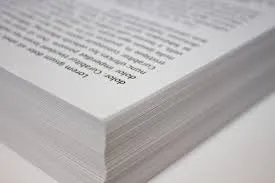When you go to the gym you either know what you’re doing or you don’t.
You’ve seen the people making full use of their gym time, making every minute count, even the down-time – they’ll lean forward, stretch out muscles, take a drink of water, chat to friends and then on to the next set.

Then the people that don’t really know how to use the equipment properly or don’t know what their goals are, what they need from the exercise and what exercises will work best for their body, fitness levels and preferences.
Some people like to do loads of cardio, some like weights, others prefer yoga and some like a mix of everything.
You also have another set of ‘muscles’ – the writing muscles. Your brain, stamina, imagination, research facility, tenacity and knowledge of your language all need work to keep them in tip-top shape.
You wouldn’t decide that you’re going to run 26 miles tomorrow – you’d plan ahead, give yourself a year or more to slowly get into shape for the gruelling task you’ve set. You’d start by jogging every day and build up to running – still keeping the every-day regime, however.
The same goes for writing. Although running a marathon is a little different, in that you know when it’s going to start and roughly when it’s going to finish (the film, Run Fat Boy, Run springs to mind) that can be similar with a book but there’s not a chance you’re going to start writing a full novel at 10am and finish writing it by 10pm the same day. A short story, perhaps even a novella, but not a full novel.
Set realistic aims, goals – and make sure you keep them realistic and ‘do-able’ because if you say, I’m going to write 3,000 words per day for the next six weeks, the first time you falter and only write 1500 words, you have 4500 to write tomorrow, or 3500 for the next 3 days… and suddenly you’re a maths expert rather than a writer.
Set realistic goals for a few days, perhaps a week – at least to start with.
If you can comfortably write 3000 words per day, set your goal at 2000 – a total of 14000 for the week. If you do three days at 3000 you’re going to feel mighty good about yourself and that will fuel the fire and help your motivation. Plus, you have 4 days in which to write another 5000 words so you can breeze that!

I'll do this much in a month if I work at it... I'll start tomorrow... just do twice as much...
Once you’ve hit your target for the day (and exceeded it if you feel like writing more) then you have your own permission to go and do something else. Read a book, do some chores and while you’re doing the weeding in the garden, maybe your Muse will come and chatter to you. If she does, listen well because she has tomorrow’s writing to tell you.
Set out a time for your writing.
Make sure you have enough time set aside for you to be able to complete your goal. Don’t sit down to write an hour before you need to be somewhere, because you’ll never concentrate enough to get your goal done. Then you’ll feel bad about it.
Instead, set out to write after you get back. Set yourself a timeframe and stick to it.
Do you find yourself fitting your writing in around other stuff?

Try turning that on its head for a week. Write first, do chores later. OK, I don’t mean leave the kids waiting for you at school, I mean the dishwasher – load that after you’ve written. If dirty dishes stacked in the kitchen bother you, write in the living room. Don’t look at them, they’ll not evolve and form a new government to overthrow you in the hour or so you leave them where they are.
Vacuum the living room after you’ve written for an hour. Train yourself that your writing comes first because if you really want to write but can never find the time, I have news for you - If you really want to write, you’ll write.
I don’t know about you, but when I’m writing, my brain is doing other things too. Usually thinking ahead of the story, but also, thinking of new ideas and plotlines. Here’s a tip: write these new ideas down too. Have another page open in docs or a notebook by the side of your computer. Write it down and get back to your manuscript/story/document. Don’t get side-tracked, your word count will suffer for it.
Write every day.
It doesn’t matter if it’s the same time and same place every day, but if that’s how you work best then do that, as long as you write every day, you are exercising that group of writing muscles.
If you travel by public transport or have a long time to wait for something, take a book – a notebook – and write down ideas, watch people and how they behave in public, write it all down. You never know where the inspiration for your next work will come from.
Don’t allow other writers to make you feel bad about what you’re doing. You know the type – I suppose we all do – he’s working on something and he’s got everything planned out, all in his head. Ask how many words he does a day and watch him stumble, mutter something about something… excuses etc but it’s gonna be great, it’s gonna be awesome.
When he asks you what you’re working on and you can’t tell him exactly and he smirks and nods knowingly, worry not. Your work can’t be explained because it’s happening as you write it – it’s evolving, taking shape and form only when you’re working on it. That guy’s work is so perfect because it’s not written down anywhere except in his own head, that’s where his imagination lies… and that's where his work will stay.
Just do your thing, write, worry about whether it’s good enough and worry about that other guy if you like, but when you see him next and you have a completed manuscript on your computer, ask him where his project is. It will still be that perfect, awesome idea and it will still be all in his head.
Most importantly - I mean VITAL - is the editing process.

Please do NOT do your book the immense disservice of finishing it and never looking at it again. To just throw it at an Editor with a pile of cash and the instructions: “Edit this,” is so wrong!
I’ve worked with people like that and yes, they do usually like what I’ve done, but if I’m given that amount of freedom, to almost re-write their book, then it’s no longer their book, it’s also partly mine and though I’ve been paid for my part and have no claim on the royalties or rights, it’s still going to have my influences embedded.
Edit your own work, go over it time after time after time. KNOW your writing, your plots, your characters and your locations. Then once you’ve finished editing for the fifth time if necessary, THEN send it to an editor.
Pictures from Google free to use images unless source cited
